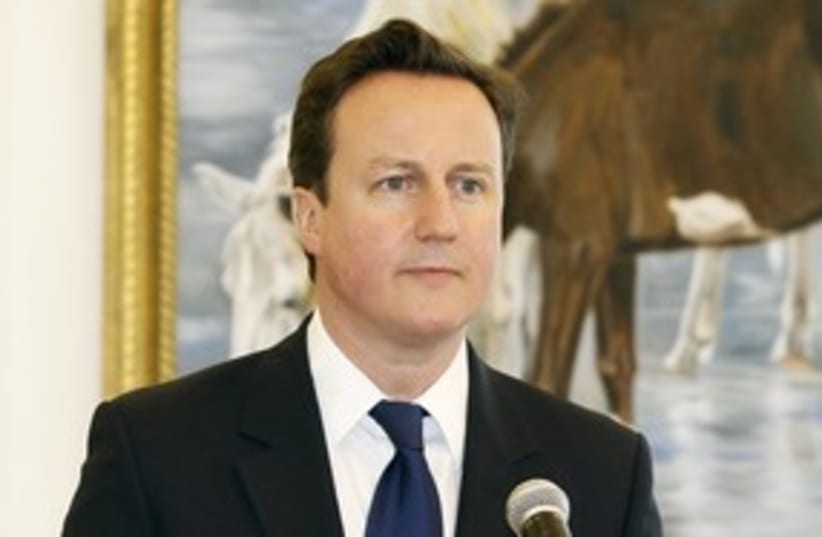NOTTINGHAM - Internationalcoalition forces operating in Libya should not stray beyond theremit allowed under the United Nations resolution, British Prime
Minister David Cameron said on Thursday."It is very important we don't go beyond that in any way,"Cameron said in a visit to an industrial site in central Englandwhen asked if Libyan leader Muammar Gaddafi was a legitimatetarget.
RELATED:Gates says Libyans, not West will determine fate'The Libyan air force no longer exists'PM: Intervention in Libya will have ripple effect in regionCameron also said military action by the coalition had"helped to avoid a slaughter" in Benghazi.Western warplanes hit Libyantanks on a fifth night of airstrikes on Thursday but failed tostop Muammar Gaddafi's forces shelling rebel-held towns in thewest or dislodge his armour in the east.Air strikes destroyed government tanks on the outskirts ofthe rebel-held city of Misrata, but other tanks inside the citywere not hit, a resident said.Earlier, French Foreign Minister Alain Juppe said it may take a coalition of Western powers days or weeks to destroy Muammar Gaddafi's military, but it will not require months."The destruction of Gaddafi's military capacity is a matter of days or weeks, certainly not months," Juppe told reporters.He also defended the pace of the operation, adding: "You can't expect us to achieve our objective in just five days."France spearheaded the UN-mandated intervention aimed at halting Gaddafi's counter-offensive against rebel forces who want to end 41 years of authoritarian rule.Paris is now pushing, along with Britain, for the setting up of a contact group -- to be made up of the main countries involved in the operation and others including Arab nations that back it -- to discuss political governance and strategy for the mission, while NATO runs day-to-day military coordination.
